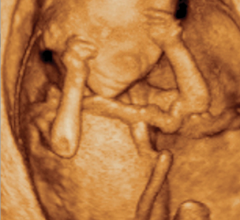If you enjoy this content, please share it with a colleague
RELATED CONTENT
November 21, 2016 — Parents may soon be able to watch their unborn babies grow in realistic 3-D immersive visualizations ...
The Tomosynthesis Mammography Imaging Screening Trial (TMIST), the first large-scale breast cancer screening trial in nearly 25 years, has been approved for funding by the National Cancer Institute (NCI). The ECOG-ACRIN Cancer Research Group (ECOG- ACRIN) leading the trial is now recruiting medical facilities as it prepares to open the trial in mid-2017.
The Radiological Society of North America (RSNA), in collaboration with The Sequoia Project, introduced the Image Share Validation Program, a conformity assessment program that will set the standard for consistency in the marketplace.
Mild traumatic brain injury (MTBI), or concussion, accounts for 75 percent of all TBI and represents an important public health problem.
The Radiological Society of North America (RSNA) will wrap up its year-long centennial celebration at its 101st annual meeting and scientific assembly, Nov. 29 – Dec. 4 in Chicago, with a glimpse of radiology’s future on exhibit in the popular RSNA Centennial Showcase.
New research, published in the journal Radiology, suggests some types of a popular contrast agent used in magnetic resonance imaging (MRI) exams may remain in the brain for years, but that the long-term effects are unknown.
Some high school football players exhibit measurable brain changes after a single season of play even in the absence of concussion, according to a study presented at the annual meeting of the Radiological Society of North America (RSNA).
A study of breast cancers detected with screening mammography found that strong family history and dense breast tissue were commonly absent in women between the ages of 40 and 49 diagnosed with breast cancer. Results of the study were presented at the annual meeting of the Radiological Society of North America (RSNA).
A study presented at the annual meeting of the Radiological Society of North America (RSNA) investigated a new device that may result in more comfortable mammography for women. According to the study, standardizing the pressure applied in mammography would reduce pain associated with breast compression without sacrificing image quality.
Researchers reported on a procedure that can preserve fertility and potentially save the lives of women with a serious pregnancy complication called placenta accreta. Results of the new study presented at the annual meeting of the Radiological Society of North America (RSNA) showed that placement of balloons in the main artery of the mother's pelvis prior to a Caesarean section protects against hemorrhage and is safe for both mother and baby.


 November 21, 2016
November 21, 2016 







